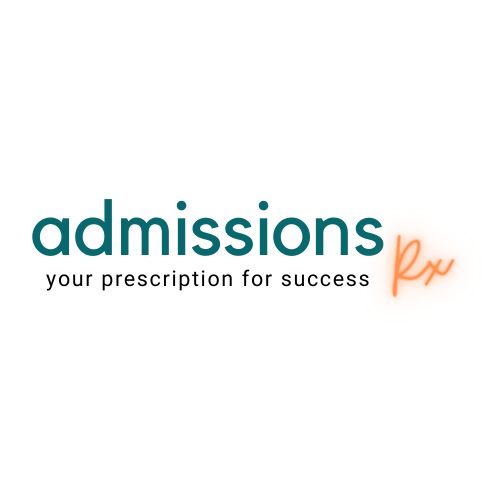Book review: Chasing my cure: A doctor’s race to turn hope into action. David Fajgenbaum
“It was obvious that I was sick. But I didn’t just feel sick. Somehow, well before the worst of the symptoms manifested, well before I was incapacitated with organ failure, and well before I was admitted to a hospital and my family gathered……. I knew I was dying. I just knew.”
I picked up this book, a physician illness memoir, after hearing David Faigenbaum’s interview on NPR’s Fresh Air. Unlike other physicians’ (and medical students’) illness narratives, what captured me about this one was the major changes he accomplished in how we approach rare diseases and a desire to breakdown barriers between researchers, physicians, patients, and families when he himself became ill with a rare disease. Breaking down medical siloes to find new answers is the future of medical breakthroughs - including the treatment of COVID 19. He talks about finding things that are “hidden in plain sight” by crowdsourcing and collaborating.
As a medical student prior to his diagnosis he discovered, “there was a stunning lack of collaboration in many places, especially amount cancer and cardiovascular disease prevention researchers. Though diet, physical inactivity, and smoking are the top three preventable risk factors for both diseases, researchers studied them in silos. They hardly worked across the aisle; they barely seemed to work with others even in their own specialties. For example, studies of the impact of risk factor modification on cancer prevention didn’t track the impact on cardiovascular disease prevention. And vice versa. The chopped up terrain was basically feudal: I saw a civil war battleground instead of a collection of people working to save lives by fighting together against a common enemy.”
This idea of crowdsourcing has been applied by others in the desire to answer seemingly mysterious or rare medical findings and complaints. It reminded me of Scott Bernstein and Leslie Gordon whose son was one of only hundreds of patients diagnosed with Progeria, an extremely rare and fatal genetic disease also referred to as premature aging syndrome. Dr. Leslie Gordon, Dr. Scott Berns, and Sam's aunt, Audrey Gordon, founded the Progeria Research Foundation and raised $1.25 million for research, which led to the discovery of the gene responsible for the disease. Dr. Leslie Gordon embarked on a journey to find a successful treatment for the disease, experimenting with a drug being used for similar protein abnormalities, Lonafarnib. Leslie found and coordinated other children with progeria to conduct clinical trials that would last two years and a half. The movie, Life According to Sam, describes their journey and is available on HBO.
There have been other attempts at medical crowdsourcing as demonstrated by the program Diagnosis on Netflix. However, Diagnosis raised some controversies about the right way to crowdsource medical issues that allow for filtering the noise and incorporating a level of scientific expertise. Diagnosis is hosted by Dr. Lisa Sanders who is a New York Time Magazine monthly columnist for a column by the same name and has published several books including “Every Patient Tells a Story”. She was also the inspiration behind House MD, the television series.
For premedical students, I think this is an informative perspective on his response to his mother’s battle with glioblastoma and his own illness, and how it impacted his career and future. Many pre-medical students are inspired by their own illness or the illness of a loved one and it is interesting to see how these events impact people differently. Dr. Faigenbaum’s response was to start a campus support group for students who are grieving or coping with the illness or death of a loved one: AMF (his mother’s initials, then Ailing Mothers and Fathers, and finally Actively Moving Forward). He ultimately created this effort into a national nonprofit. He turned his grief into a sense of purpose and a desire to unite people towards a common goal.
“One thing I’ve learned is that every one of us who puts on a white coat has a fraught relationship with the concept of authority. Of course, we all train and grind for years and years to have it. We all want it. And we all seek to be the trusted voice in the room when someone else is full of urgent questions. And the public expects near omniscience from physicians. But at the same time, all of that education, all those books, all those clinical rotations, all of it instills in us a kind of realism about what Is and what is not ultimately possible. Not one of us knows all there is to know. Not even nearly. We may perform masterfully from time to time - and a select few may really be masterful at particular specialties- but by and large, we accept our limits. It’s not easy. Because beyond those limits are mirages of omnipotence that torture us: a life we could have saved, a cure we have found. A drug. A diagnosis. A firm answer.
The truth is that no one knows everything, but that’s not really the problem. The problem is that, for some things, no one knows anything, nothing is being done to change that, and sometimes medicine can be frankly wrong.
I still believe in the power of science and medicine. And I still believe in the importance of hard work and kindness. And I am still hopeful. And I still pray. But my adventures as both a doctor and a patient have taught me volumes about the often unfair disconnect between the best science can offer and our fragile longevity, between thoughts and prayers and health and well-being.”
I

